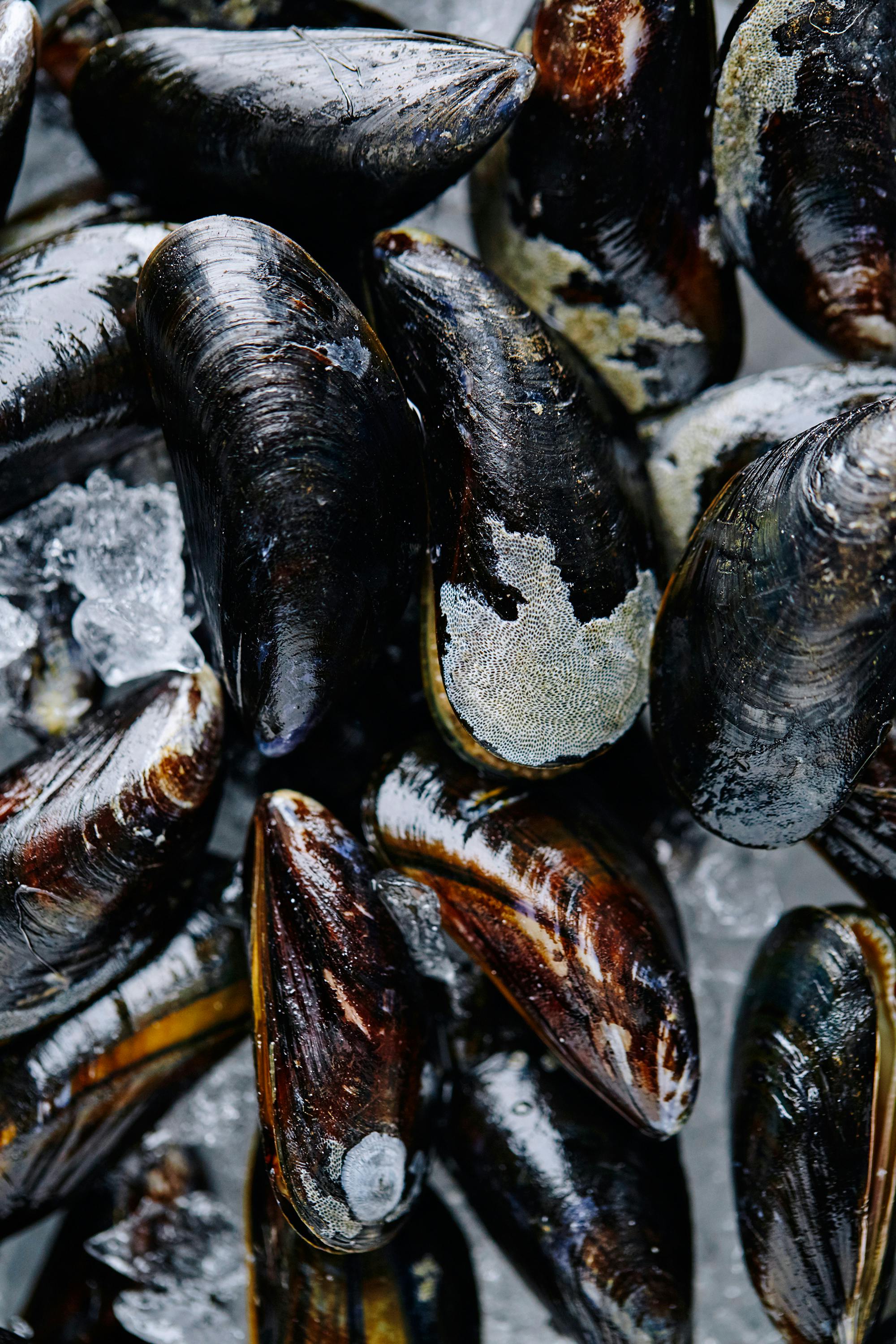
Effective Ways to Optimize Your Keto Mediterranean Diet in 2025
The Keto Mediterranean diet combines the principles of ketogenic eating with the flavors and nutritional guidelines of Mediterranean cuisine, creating a powerful eating plan for those looking to enhance their health and wellness. Emphasizing healthy fats, nutrient-rich foods, and low carbohydrate intake, this hybrid diet offers various health benefits, including weight management and improved heart health. In 2025, optimizing this approach is key to achieving better results in areas such as weight loss and sustainable eating.
This comprehensive guide will delve into effective strategies to refine your keto Mediterranean lifestyle. From exploring meal prep ideas to understanding the importance of good fats and protein sources, each section provides actionable insights tailored for 2025. By following these tips, you'll be equipped to enjoy savory dishes while maintaining your health goals. Get ready to embrace the benefits of this unique dietary approach!
Key takeaways include strategies for meal scheduling, hydration importance, and specific cooking techniques to enhance flavor and nutrition. Let’s dive into how to fully optimize your keto Mediterranean diet!
Essential Principles of the Keto Mediterranean Diet
Building on the fundamentals of both keto and Mediterranean diets, it's vital to understand their core principles. The keto diet primarily focuses on achieving ketosis by drastically reducing carbohydrate intake and increasing fats. Meanwhile, the Mediterranean diet emphasizes whole, nutrient-dense foods, including plenty of vegetables, fish, and healthy fats like olive oil and avocados.
Understanding Ketosis and Healthy Fats
Ketosis occurs when your body switches from burning glucose for energy to burning fat, making it essential to adopt a low-carb meal plan when following the keto Mediterranean diet. Healthy fats, such as those found in olives, nuts, and avocados, are vital for maintaining this state, delivering essential fatty acids and supporting heart health.
Incorporating Mediterranean Cuisine in Your Meals
Flavorful Mediterranean cuisine offers a cornucopia of options that fit perfectly into a ketogenic framework. Think of seafood recipes enriched with garlic, lemon, and olive oil, or savory dishes made with leafy greens and herbs such as basil and oregano. Each meal can be designed to combine high-quality protein sources with abundant vegetables while limiting carbohydrate-heavy ingredients.
Meal Prep Ideas for Convenience
Planning ahead with meal prep is an effective strategy for adhering to your dietary choices while maintaining a busy lifestyle. Preparing bulk portions of keto-friendly Mediterranean dishes can save time and ensure you always have healthy options available. This might include pre-cooking seafood, portioning out healthy fats from olives and nuts, and using seasonally inspired vegetables.
This naturally leads us to the next section focused on hunger management techniques.
Hunger Management and Meal Timing Strategies
Understanding and managing hunger signals is crucial for sticking to any diet, particularly one that involves calorie counting. By leveraging the principles of the keto Mediterranean diet, you can effectively manage your appetite and achieve a balanced energy intake.
Portion Control and Food Labels
Practicing portion control helps ensure you stay within your calorie deficit while enjoying a variety of foods. Learning to read food labels is essential for understanding the nutritional value of the products you consume. Look for lower-carb options to incorporate more nutrient density into your meals without exceeding your macros.
Meal Timing for Optimal Metabolism
Staying mindful of when you eat can enhance your metabolic process. Focusing on meal timing through intermittent fasting or restricting eating windows encourages your body to burn fat more effectively. Pairing this with keto Mediterranean foods, such as protein-rich snacks and fat-burning foods, can elevate your health journey.
Snack Ideas for Sustained Energy
Choosing the right snacks between meals can make a significant difference in your energy levels and overall satisfaction. Aim for high-fiber foods and protein-rich snacks that provide long-lasting energy without excessive calories. Think dark chocolate, nuts, or even avocado dips with veggies to keep you on track while enjoying various tasty options.
With these strategies in mind, let's transition to another key aspect of optimizing your keto Mediterranean journey: culinary techniques and food customization.
Culinary Techniques for Flavorful Dishes
Effective cooking methods can transform your meals, contributing to an enjoyable dining experience while maintaining all the nutritional benefits associated with the keto Mediterranean diet. Mastering these techniques can elevate your cooking game and offer flexibility in meal options.
Cooking Methods to Enhance Health
Embracing various cooking methods allows you to maintain the integrity of nutrient-rich foods. Techniques such as grilling, steaming, or roasting can amplify the flavor of vegetables while keeping them low in calories. For instance, using olive oil for roasting can enhance not only taste but also the essential nutrients in your meals.
Food Swaps and Recipe Variations
Experimenting with food swaps can introduce new flavors while sticking to your dietary guidelines. For instance, consider substituting traditional pasta with zoodles (zucchini noodles) or cauliflower rice. These creative variations provide you with a low-carb alternative alongside typical Mediterranean ingredients, such as tomatoes and peppers.
Importance of Culinary Herbs and Seasoning
Herbs and spices play a crucial role in Mediterranean cooking. They not only enhance flavor but also contribute beneficial nutrients. Incorporate herbs like rosemary, thyme, and parsley to boost the antioxidant properties of your meals while keeping sugar alternatives and low-calorie options in check.
Transitioning to the next section, let's explore the interactions between food and overall wellness, specifically focusing on hydration strategies.
Hydration Strategies to Support Wellness
Staying properly hydrated is essential when optimizing any diet, especially one that emphasizes healthy fats and protein. Hydration supports digestion, nutrient absorption, and overall body functions, making it a crucial element for anyone following a ketogenic Mediterranean lifestyle.
Importance of Water Intake
Ensuring adequate water intake is fundamental for wellness and can aid in managing hunger signals. Water-rich foods, such as leafy greens and certain vegetables, serve two purposes: they provide essential nutrients while keeping you hydrated. Moreover, drinking water before meals can help control portion sizes and overall calorie intake.
Herbal Infusions and Flavoring Water
Incorporating herbal infusions can enhance drinking experiences and encourage higher water consumption. You can experiment with flavors by adding slices of citrus fruits, fresh herbs like mint, or even cucumber. These flavorful infusions can make hydration enjoyable while complementing your overall meal plan.
Monitoring Electrolyte Intake
Maintaining electrolyte balance is especially important during the ketogenic phase, as the body tends to excrete more minerals through urine. Incorporating foods like avocados and nuts can help replenish electrolytes while fitting seamlessly into both keto and Mediterranean diets. Keeping track of your electrolytes through hydration can optimize your energy levels and support overall health.
Now that we have discussed the role of hydration, let’s tackle the impact of dietary choices on long-term health and well-being.
Sustainable Eating Habits for Long-Term Success
Fostering sustainable eating habits ties directly into optimizing your keto Mediterranean diet for 2025 and beyond. It promotes not only personal health but also global wellness through mindful food choices and ethical sourcing. Let’s explore how making well-informed dietary decisions can lead to positive health outcomes.
Cultural Influences and Food Ethics
Understanding cultural influences surrounding food can enrich your culinary experience while helping you appreciate diversity in meals. Exploring local ingredients and culinary traditions in Mediterranean cuisine leads to a greater appreciation for the foods chosen, promoting community well-being and ethical sourcing practices.
Exploring Seasonal Foods for Nutrient Density
Cuisines that emphasize seasonal foods often exhibit heightened nutrient density as these ingredients provide fresh flavors at their peak ripeness. Integrating seasonal vegetables and fruits can enhance taste and support sustainable practices, reducing the carbon footprint associated with out-of-season produce.
Mindful Eating Patterns for Balance
Practicing mindful eating encourages better digestion, promotes satisfaction, and helps manage hunger signals. By slowing down and appreciating your meals, you can develop a healthier relationship with food while gaining insights into your body’s responses. This awareness aids in portioning meals to meet your individual needs.
Q&A Section: Frequently Asked Questions
What are the best protein sources for a keto Mediterranean diet?
Good protein sources include seafood, poultry, eggs, nuts, and legumes. Choose fish like salmon or mackerel for omega-3 fatty acids while maintaining lower carb levels. Consider meal combinations that include high-fiber foods for added nutrition.
How can I manage cravings on a low-carb meal plan?
Opt for healthy fats and protein-rich snacks that satisfy hunger. Foods such as avocados, almond butter, or cheese can curb cravings effectively. Staying hydrated and monitoring portion sizes can also help in managing cravings.
What cooking techniques are best suited for Mediterranean recipes?
Techniques such as roasting, grilling, and sautéing can enhance flavors while ensuring nutritional integrity in your meals. Incorporating various herbs and spices completes your culinary experience.
Can I enjoy desserts while on a keto Mediterranean diet?
Yes, desserts can be enjoyed in moderation. Look for sugar-free alternatives using sugar alternatives like stevia or monk fruit. Consider desserts made from high-fiber foods or nut-based treats that match your dietary requirements.
Is it necessary to count calories on a keto Mediterranean diet?
While it’s beneficial to be aware of calorie intake, focusing on nutrient density and portion control should be prioritized. Monitoring intake can assist in achieving your weight loss goals without compromising overall health.

